
by Kristyn Zalota | Apr 21, 2015 | 2015, Awareness, Babies, Birthing, Clean Birth Kits, Humanitarian, Inspirational, Laos, Motherhood, Newborn Health, Philanthropy, Social Good, World Moms Blog, World Voice
The Truth About Fundraising.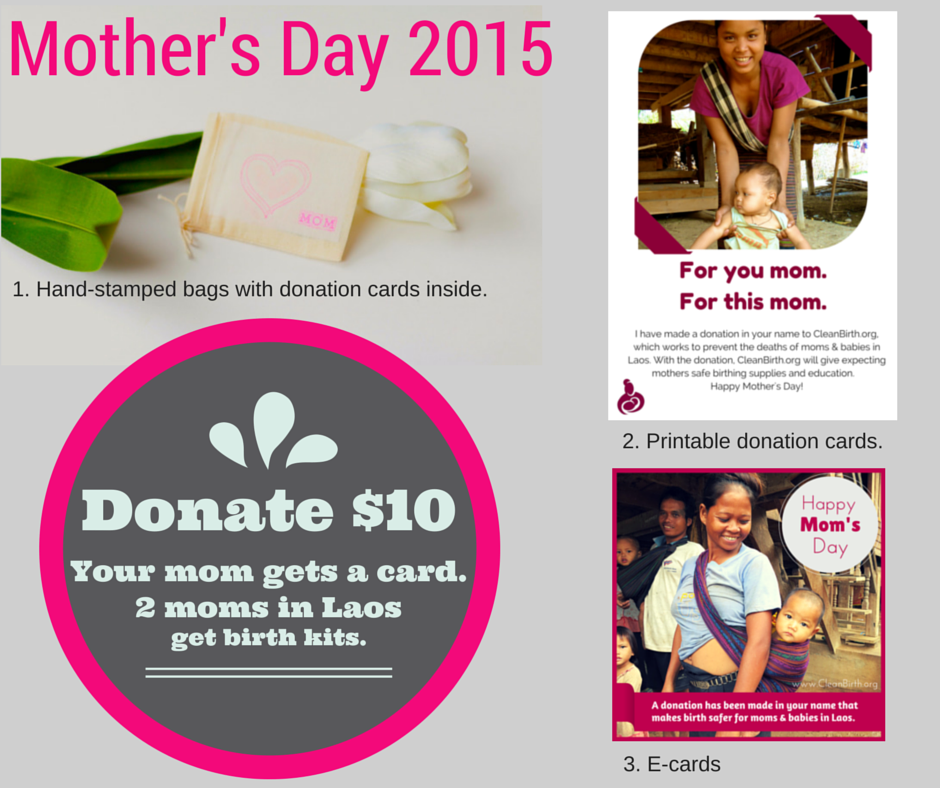
When I talk about the fundraising work that I do for the organization I started, CleanBirth.org, I often hear in response, “I could never ask people for money.”
I’ll be honest, I don’t have a choice. When I began providing moms with life-saving birth supplies, in partnership with a local NGO in Laos, I used my own funds. Happily, the $5 kits proved effective and more moms wanted the sterile, convenient supplies that prevent deadly infections in moms and babies. How could I say no?
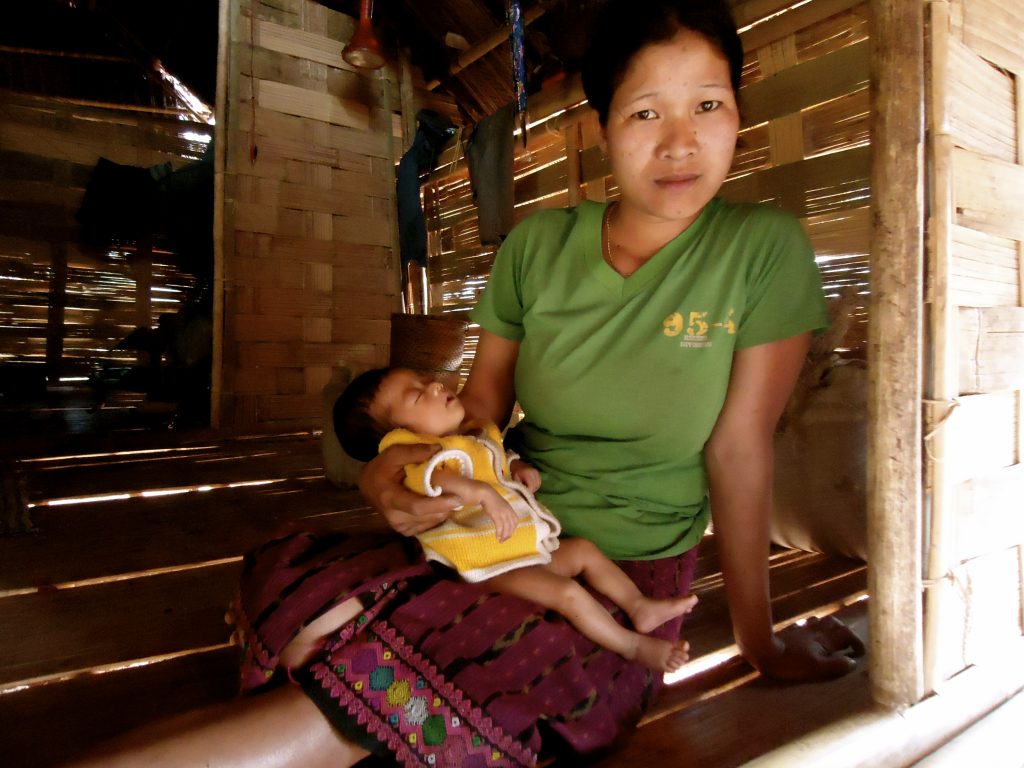
So I promised to fund as many kits as were needed.
Since we began in November 2012 we have provided 4,000 birth kits to moms and training for 180 nurses and staff.
Knowing that my own funds couldn’t sustain the project, I told my story to others. I wasn’t great at promoting the project at first but many friends and family supported me anyways. The tagline: $5 Saves 2 Lives in Laos proved irresistible.
Now 3 years on, the project has grown beyond my own social network. Thanks to bloggers at World Moms Blogs and others, we have extended our reach worldwide. I am constantly touched by the simple notes of support that accompany donations from complete strangers:
Thank you for doing what you do for mothers and babies!
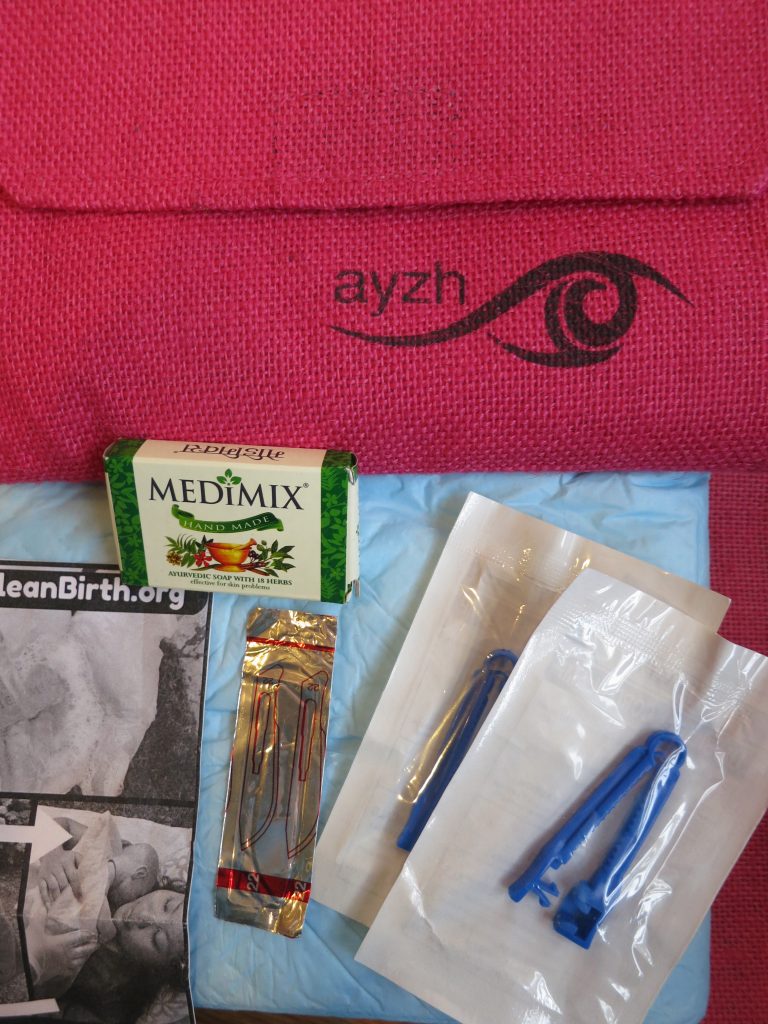
Another great aspect of fundraising is working with others who want to share their special gifts to make birth safer. One example is a fun collaboration happening now for Mother’s Day. World Moms Blogger and photographer Ewa Kuc of Ewa Samples Photography in the Bay Area has developed awesome Mother’s Day photo session packages. A full 40% of the profits go to CleanBirth.org!
In my almost 3 years doing this, I have come to appreciate that fundraising is a give and take proposition.
I’m not just taking money but giving something to donors: a feeling of making a positive impact in the world; the piece of mind that comes from donating to a transparent, registered organization; or a tangible gift to give a loved one.
One such gift, our $10 Mother’s Day cards, honor mom or grandma & provide 2 moms in Laos with Clean Birth Kits.
So the truth about fundraising is that I do ask for money. (Please click here to buy our Mother’s Day cards!! J) But I also get to connect with many generous people who are committed to making their world a better place. We each give, and we each take. Not so scary after all.
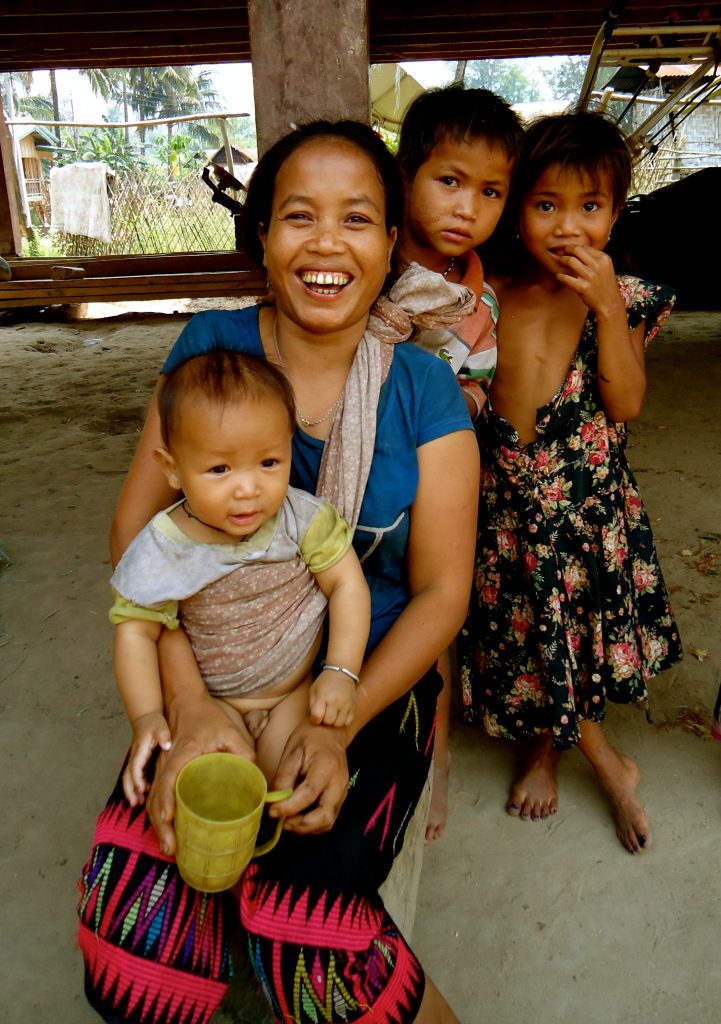
What benefits do you receive from donating or volunteering with a non-profit?
This is an original post written for World Moms Blog by Kristyn Zalota, the founder of Clean birth.org
Photo credits Kristyn Zalota.
Kristyn brings her years of experience as an entrepreneur and serial volunteer to CleanBirth.org. She holds a MA, has run small businesses in Russia and the US, and has volunteered in Nicaragua, Costa Rica, Thailand, Cambodia, Laos and Uganda on projects related to women’s empowerment.
After having children, Kristyn became an advocate for mothers in the US, as a doula and Lamaze educator, and abroad, as the Founder of CleanBirth.org. She is honored to provide nurses in Laos with the supplies, funding and training they need to lower maternal and infant mortality rates in their villages.
More Posts

by Adwoa Gyimah | Feb 17, 2015 | 2015, Birthing, Ghana, Maternal Health, Social Good, World Moms Blog, World Voice
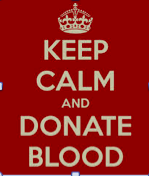
Being an advocate for children and mothers, especially the needy in the society, means supporting and standing for the rights of these vulnerable individuals in the society. Children should not be left to their own devices without the able help of an adult; preferably a mother. That is why no woman should die giving life to another.
Birth is a beautiful thing and must be a happy moment in the lives of every family, most importantly the mother. But sometimes the process of giving life can be very traumatic and sometimes the unexpected even happens. Postpartum hemorrhage(PPH) is defined medically as the loss of more than 500 ml of blood within the first twenty-four hours following childbirth and is the leading cause of maternal mortality in low-income countries, and the primary cause of nearly a quarter of all maternal deaths globally. In some cases this condition is known to occur up to six weeks after delivery. There are various forms of treatment, of which blood transfusions is the most common; yet In the developing world, health systems are faced with enormous constraints that hinder the prompt delivery of obstetric care, which is vital for saving the lives of women who develop PPH.
A beneficiary of blood transfusion myself, I know its relevance to both the mother and the baby. It is therefore crucial at any point in time during birthing to have stock of blood in the blood bank for such emergencies.
In Ghana, there have been campaigns to donate blood as most of the blood banks are running low on their stock. Many corporate bodies have joined the campaign to ensure that this is achieved so that more lives can be saved when the need arises. Over the years, we have all contributed to replenishing the blood banks by donating pints of blood to the various health centers that need them. Last year, our organization, The African Child and Mother collected several pints of blood to replenish the blood bank at the Tema General Hospital and the Tema Polyclinic as part of our “February love month”.
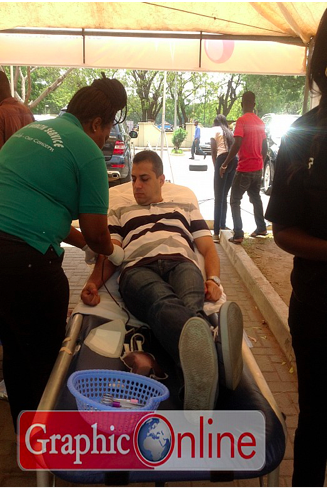
This year however, as part of the Corporate Social Responsibility of some large corporate institutions, there were activities held today in the capital city to organize blood donation with the same aim of replenishing the blood banks. We believe that other corporate institutions and individuals will follow suit and donate blood to save a life because giving blood means giving life.
It is my personal appeal to all and sundry that we volunteer to give life by donating blood especially during this love month.
Wishing everyone a giving valentine!
Have you ever given blood or needed to receive it yourself?
Picture courtesy Graphic online
This is an original post written by Adowa Gyimah of Ghana for World Moms Blog.

by Kristyn Zalota | Jan 27, 2015 | 2015, Birthing, Clean Birth Kits, Maternal Health, Motherhood, Philanthropy, World Moms Blog, World Voice
As many of you know, less than 3 years ago, I started an organization, CleanBirth.org, to make birth safer in Laos. We have had great success in 2014 with 2,000 Clean Birth Kits (hygienic birthing supplies that prevent infection) delivered and 88 Lao nurses and staff trained.
Zero mothers who used the kits reported an infection in themselves or their babies!
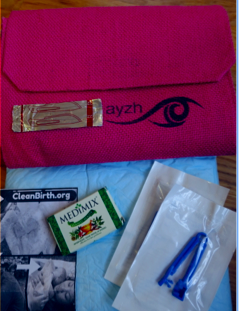
$5 Clean Birth Kit
In my mind, CleanBirth.org’s success and World Moms Blog are inextricably linked.
When CleanBirth.org was in its infancy, I was approached by fellow World Mom, Nicole Melancon of Thirdeyemom, to join this amazing group of writers and moms from around the world.
When I asked founder, Jennifer Burden, for World Mom Blog’s support for our first crowd funding campaign in January 2013, she gave an unhesitating “Yes.” I felt such gratitude as fellow bloggers profile pictures changed to CleanBirth.org’s logo. Having the support of all of YOU: accomplished professionals, writers, and world changers gave me such confidence.
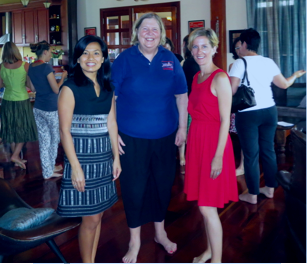
Dee, Kristyn and the US Ambassador to Laos
Together we met that funding goal and then again in 2014 goal. With your support, I am confident that we will raise what we need for our upcoming training trip. This March, we will return to Laos, to train local nurses on Clean Birth Kits and the WHO’s Essentials of Newborn Care, through an alliance with Yale University School of Nursing. The Yale Midwives, whose travel is funded by the School of Nursing, are the perfect partners for educating nurses on safe birthing practices.
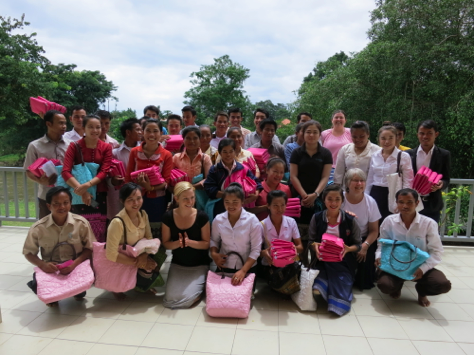
Yale & CleanBirth Training of Laos Nurses
Please consider contributing to our crowd funding campaign this year. A donation of just $5 provides a mother with a birth kit and education by the nurses we train. Join your voice with ours on social media.
Because no mom should lose her baby to a preventable cause. And no baby should lose their mom.
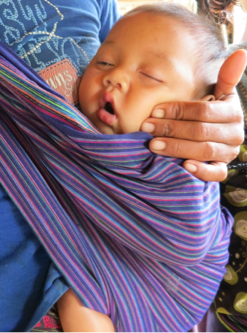
$5 Saves 2 Lives
Here are some ways to get involved:
- Donate http://startsomegood.com/cleanbirthlaos
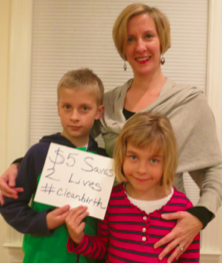
- Join our WMB hosted Twitter Party Jan 29 1-2 EST #CleanBirth
- Take a picture with a handwritten sign $5 Saves 2 Lives #CleanBirth and post on FB or Twitter.
- Blog & share posts from CleanBirth.org’s FB page.
Thank you for helping us help mothers who lack adequate access to maternal health services!
This is an original post written for World Moms Blog by Kristyn Zalota founder of CleanBirth.org.
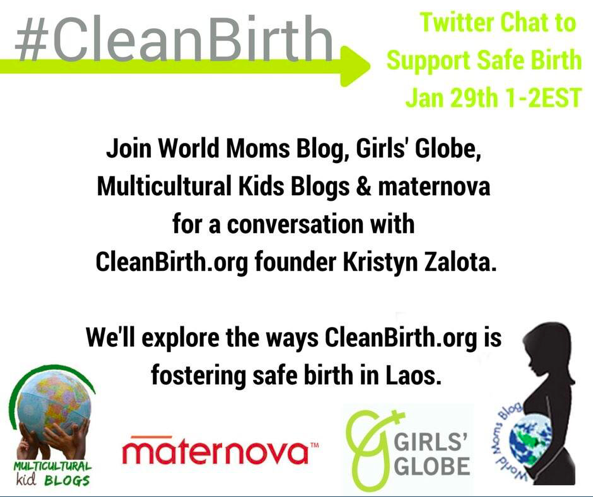
Kristyn brings her years of experience as an entrepreneur and serial volunteer to CleanBirth.org. She holds a MA, has run small businesses in Russia and the US, and has volunteered in Nicaragua, Costa Rica, Thailand, Cambodia, Laos and Uganda on projects related to women’s empowerment.
After having children, Kristyn became an advocate for mothers in the US, as a doula and Lamaze educator, and abroad, as the Founder of CleanBirth.org. She is honored to provide nurses in Laos with the supplies, funding and training they need to lower maternal and infant mortality rates in their villages.
More Posts

by Martine de Luna (Philippines) | Aug 21, 2014 | 2014, Being Thankful, Domesticity, Life Lesson, Motherhood, Parenting, Philippines, Pregnancy, World Motherhood
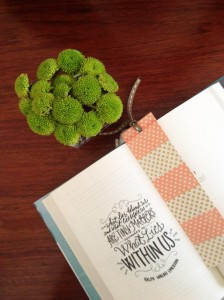 Hello, world moms everywhere!
Hello, world moms everywhere!
Wow, it’s been quite a blogcation, hasn’t it? In other parts of the world, it’s been a long and lazy summer, but for us here in the Philippines, it’s been a wet, sometimes troublesome monsoon season. Earlier in July, one of the worst typhoons hit the city of Manila (where I live), Typhoon Rammasun (called “Typhoon Glenda” by Filipinos). Several of my friends were affected; some even lost parts of their home, roofs, belongings. Others had no electricity for days, some as long as a week.
Yes, it was a difficult July for all of us here in my country. But thankfully, somehow we are alright. If you look around Manila now, there are still signs of damage. However, you will also see the smiles of our people, redolent with possibilities. Despite a harrowing monsoon season, our nation chugs on. Not without inconveniences, of course, but we manage.
I don’t know, but it’s a Filipino trait, I think. I guess our people are so used to hardships and difficulties, sometimes we just wait for them to blow over and just press forward. Of course, this is no excuse for our local government units, those responsible for the effective drainage of the annual heavy rainwaters, and the management of the city’s emergency facilities and evacuation centers. There is much to grumble about. Our government has been “awarded” as number one of the ten most corrupt countries in Asia — obviously something I’m not happy about. 30 million of our people live below the poverty line, meaning about 40 percent of our population has no adequate food rations, shelter, or access to public education.
I could go on about how much must has to change in my country. But I won’t. We have the news and social media for that.
I suppose it is because I am pregnant with my second child. As of this post for World Moms Blog, I am 16 and a half weeks along the way. I had a rocky first trimester, and am just settling into the apparent comforts of the second trimester. I am hoping and praying for a peaceful one! I’ll definitely need it so that I can work and continue to contribute to our family income.
Because I’m expecting, I can’t help but sometimes worry at how different my world is now, compared to when we had Baby #1 (who is now four years old, can you believe?). Things are definitely more challenging now: I’m older, as is my body (biological clock concerns); I seem to be busier now with work, compared to my first pregnancy (because I work from home now); financially, things are more of a concern now, with no healthcare provided for freelancers like me (Dear God, please provide). What concerns me the most is my eldest: Will I be able to show him how to be a good brother? How will we afford two kids? How, how, how?
So right now, I’m trying to see things with more positivity. But it doesn’t stop there. I want to see through to the heart of my apparent setbacks and see what I can make of them. You know what I mean? I want to — as Max Lucado says — probe and explore a problem, and eventually use it.
It’s the same with my outlook on my country. I could nitpick and worry over our national problems, or I could probe, explore and use those problems towards solutions. Every little bit of potential counts!
I want it to be the same with my pregnancy. I have resolved to look my problems in the face and challenge them head on. It’ll be harder because of my condition, but my gumption doesn’t want to fail me! I’m hoping that as I work, homeschool, rest, pray, read, keep my home, et al., that I will be able to create possibilities.
I have to. It has to start with me. Don’t you agree?
How about you, moms? How do you deal with apparent setbacks, in your own world? What do you do to press forward?
This is an original post by Martine de Luna for World Moms Blog. Photo credit goes to the author. Please visit Martine’s blog at www.makeitblissful.com. You can also work with her, if you want to create blogs or websites for your business, just connect with her at www.martinedeluna.com
Martine is a work-at-home Mom and passionate blogger. A former expat kid, she has a soft spot for international efforts, like WMB. While she's not blogging, she's busy making words awesome for her clients, who avail of her marketing writing, website writing, and blog consulting services. Martine now resides in busy, sunny Manila, the Philippines, with her husband, Ton, and toddler son, Vito Sebastian. You can find her blogging at DaintyMom.com.
More Posts

by Elizabeth Atalay | Jun 24, 2014 | 2014, Africa, Awareness, Babies, Birthing, Ethiopia, Health, Humanitarian, Maternal Health, Millennium Development Goals, Motherhood, Newborn Health, Pregnancy, Save The Children, Social Good, Third Eye Mom, Travel, World Moms Blog, World Voice
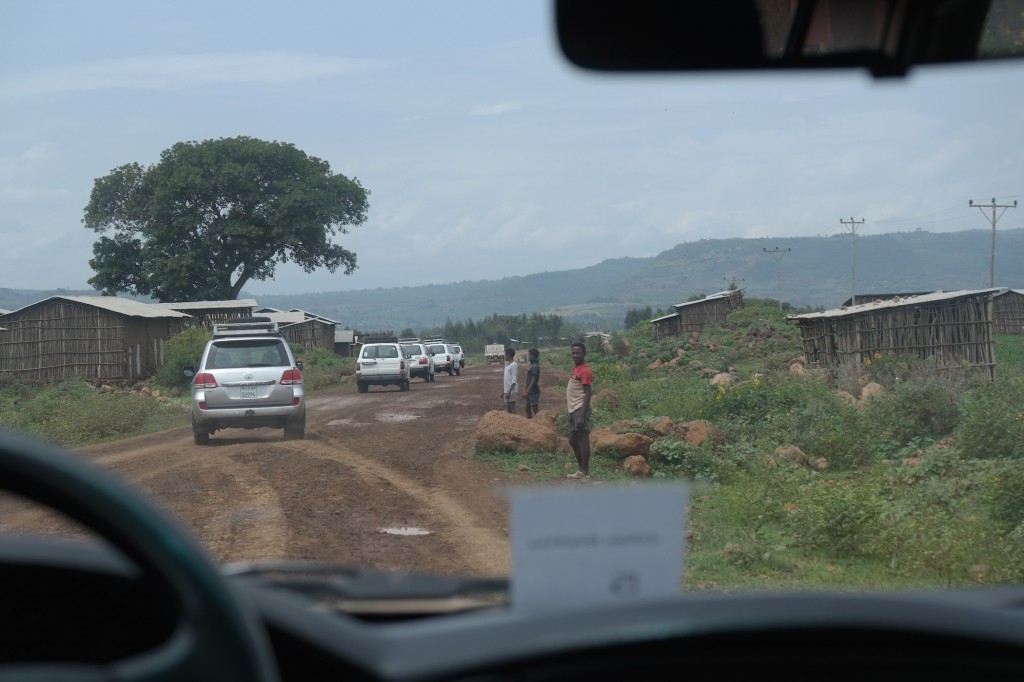
We had just spent the night at the source of the Blue Nile River. Lake Tana sits in Bahir Dar, Ethiopia, and as our caravan of Land Cruisers wove through the countryside from Bahir Dar to Mosebo I took in deep gulping breaths of sweet fresh Ethiopian air. The lush colors of our surroundings looked to me like they had been enhanced in Photoshop in the way that everything seemed to pop. How could I feel this emotional connection to place that was never mine? A place I had never been?
Though this is my first time in Ethiopia, the verdant landscape brought me back to other rural parts of Africa I’d traveled through in my youth, similar topographies that had stayed with me ever since. This time I’d returned to the continent as a new media fellow with the International Reporting Project to report on newborn health. World Moms Blog Editor Nicole Melancon of ThirdEyeMom is a fellow on the trip as well, and last week wrote about our initial overview of maternal and newborn health in Ethiopia. Now we were heading to one of the villages housing a Health Post, which serves the local and surrounding population of approximately 3,500 people.
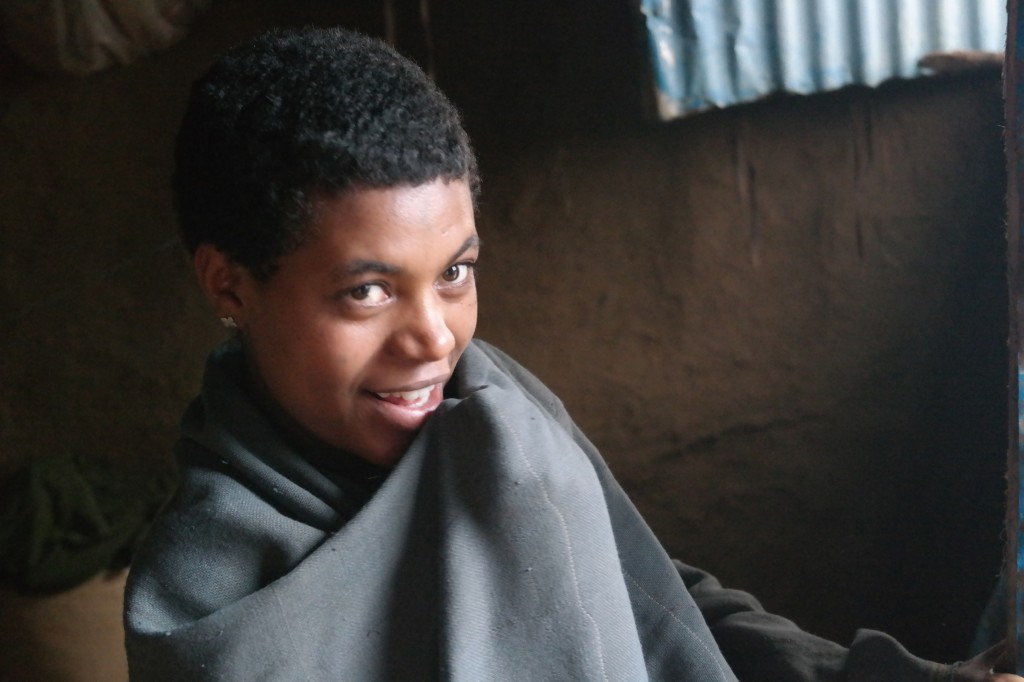
Mosebo Village is part of Save The Children’s Saving Newborn Lives program, and as such is looked to as a model village in the Ethiopian Government’s plan to reduce maternal and newborn mortality. Mosebo is a rural agrarian community that produces wheat, teff and corn. There I met seven-year-old Zina whose mother, Mebrate was about to give birth. Through our translator Mebrate estimated her age to be around 26, and told us that Zina was her first child. For economic reasons she and her husband had waited to have a second. When she had Zina, Mebrate had gone to her parent’s home to give birth, as women in Ethiopia often do. It is estimated that 80% of Ethiopian mothers will give birth in their home, often without a trained health care attendant. Towards the end of Mebrate’s first pregnancy she went to live with her parents as her family instructed, until after the baby was born. In that way her mother could help her deliver, could care for her and the baby, and feed her the traditional porridge after birth. Although there were no complications during her delivery, sadly, many young mothers giving birth at home are not as fortunate. The time period during and around birth are the most vulnerable for the lives of both the mothers and babies. The Saving Newborn Lives Program aims to reduce maternal and newborn mortality beginning with awareness programs and antenatal care on the local level at Health Posts like the one we visited in Mosebo.
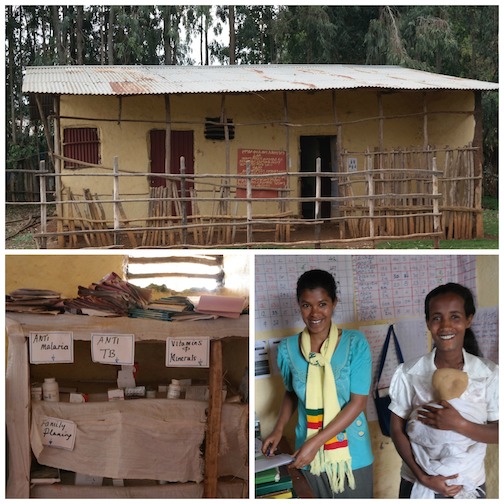
The Mosebo Health Post and Health Extension Workers
We had met Tirgno and Fasika, the two Health Extension Workers at the Mosebo Health Post earlier that day as they showed us the two room interior, and explained their role in improving maternal and newborn health. They work to raise awareness in the community about the importance of antenatal care, and the potential dangers of giving birth at home for both mother and child. Newborn health is interdependent with maternal health, and the most prevalent causes of newborn mortality, infection, Asphyxiation, pre-maturity or low birth weight, and diarrhea can often be avoided with proper care. These days in Mosebo after receiving antenatal care at the Health Post women are then referred to the regional Health Center for deliveries.
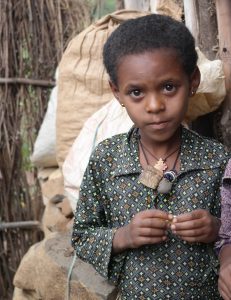
Zina shyly smiled when we ask her how she felt about having a new sibling, she stood straight and tall listening intently as we asked her mother about the babies’ arrival. When Mebrate goes into labor this time, with her second child, she will embark on the walk along rural dirt roads for around an hour to the nearest Health Center to give birth.
Elizabeth Atalay is reporting from Ethiopia as a fellow with the International Reporting Project (IRP). This is an original post written for World Moms Blog.
You can follow all IRP reports by World Moms Elizabeth Atalay & Nicole Melancon at #EthiopiaNewborns

Elizabeth Atalay is a Digital Media Producer, Managing Editor at World Moms Network, and a Social Media Manager. She was a 2015 United Nations Foundation Social Good Fellow, and traveled to Ethiopia as an International Reporting Project New Media Fellow to report on newborn health in 2014. On her personal blog, Documama.org, she uses digital media as a new medium for her background as a documentarian. After having worked on Feature Films and Television series for FOX, NBC, MGM, Columbia Pictures, Warner Brothers, 20th Century Fox, and Castle Rock Pictures, she studied documentary filmmaking and anthropology earning a Masters degree in Media Studies from The New School in New York. Since becoming a Digital Media Producer she has worked on social media campaigns for non-profits such as Save The Children, WaterAid, ONE.org, UNICEF, United Nations Foundation, Edesia, World Pulse, American Heart Association, and The Gates Foundation. Her writing has also been featured on ONE.org, Johnson & Johnson’s BabyCenter.com, EnoughProject.org, GaviAlliance.org, and Worldmomsnetwork.com. Elizabeth has traveled to 70 countries around the world, most recently to Haiti with Artisan Business Network to visit artisans in partnership with Macy’s Heart of Haiti line, which provides sustainable income to Haitian artisans. Elizabeth lives in New England with her husband and four children.
More Posts

by Mamawearpapashirt (Singapore) | Mar 13, 2014 | Babies, Health, Pregnancy
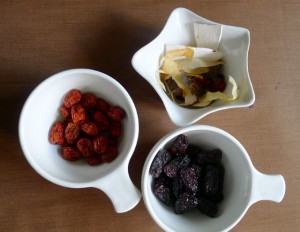
Chinese Herbs
Most people think of confinement (a period of 30 days of recuperating after childbirth) as a rather smelly and icky ordeal where the new mother is not allowed to shower at will, drink plain water, or venture outdoors. At least that’s how one usually does confinement here in Singapore.
My recent one was my third time so in many ways I knew what to expect.
During the first few days in the hospital, I didn’t shower or wash my hair. But I kept my hair clean with a dry shampoo and wiped my body down with a microfiber cloth and warm water.
When I got home, I restricted myself to showering every other day using water boiled with a Chinese herb that helps to remove wind. Thankfully the weather was cool so I didn’t feel uncomfortable at all, even on no-shower days.
In place of water, I drank red date tea, made by boiling red and black dates, dried longans and other herbs in water. This drink has a sweetish taste and the red dates are meant to replenish blood and aid overall recovery, so this is the easiest practice to follow, IMHO. When my red date tea ran out (usually by night-time), I would make a fresh brew of fennel tea, to help with milk supply.
Traditional confinement diet usually encompasses cooking with loads and loads of ginger, sesame oil, and various other Chinese herbs for specific benefits to the postpartum body.
For the first one to two weeks, I ate simple steamed or boiled dishes like steamed fish, fish papaya soup (great for boosting breast-milk) and chicken stir-fried with ginger and black fungus.
Subsequently I had tonic soups too, such as black chicken soup double-boiled with Dom Benedictine.
I avoided cold drinks, vegetables, fruit and bread as the Chinese believe that these lead to more ‘wind’ in the body, which is generally not beneficial as it affects our joints and digestive system.
How did I cook all these nutritious meals? Well, it’s common for new mums to hire a confinement nanny (who stays over at your house) to cook and clean and care for baby during the first month. But as we recently hired a domestic helper, I just provided her with recipes and a rough meal plan so that she knew what to prepare each day.
Joshua, our latest arrival, was sleepy throughout the entire first month which worked out well for me as I could catch up on sleep during the day-time. So I would say my biggest challenge was adjusting to a new routine, which at one month after birth is non-existent.
The other major challenge was coping with the older kids. As I was busy either breastfeeding, caring for myself, or resting, I barely had energy left over for Vera (5 year old) and Javier (3 year old). It helped that the hubby took them out to play on the weekends, and on weekdays when he got home early, but it didn’t alleviate my guilt. As far as I could, I tried to involve my older kids when I was busy with the baby. Obviously they can’t change diapers, but they were pretty good at fetching things and helping to put soiled clothing into the laundry basket. The big sister was especially helpful in distracting him when he was cranky or crying. She also helped to rock the rocker when he needed a nap, and pop his pacifier back whenever it dropped. Sometimes when baby isn’t due to sleep, I’d read them a book while breastfeeding. And on good days when everything fell into place, I tried to do simple activities that they enjoyed, such as painting, art and craft, and bringing them to play with their skate scooters at the nearby park.
For self-care, I followed the age old advice – sleep when baby sleeps. I kept visitors to a minimum so I could focus on caring for baby and getting sufficient rest.
Before I knew it, the month was up. We had a lovely celebration for Joshua’s one-month birthday, which over here is a pretty big thing. And everyone congratulated us for surviving life with three. But as you know, the journey has only just begun…
How did you rest and recuperate after childbirth? What traditional practices do you follow?
Photo credit to the author.
June, born and bred on the sunny and sometimes rainy shores of Singapore, is a mother of two - a chatty 4 y.o. girl and a toddler boy who babbles. She works part-time as a communication consultant, and she is deeply passionate about family, writing, faith, and good old-fashioned love. She can be found on her blog, Mamawearpapashirt.
More Posts

















 Hello, world moms everywhere!
Hello, world moms everywhere!









